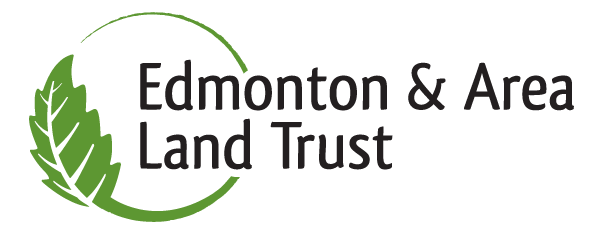A bee hotel installed on the Muttart Conservatory grounds by EALT.
Do you think about where your food comes from? How it gets from the farm to your table, and who gets it there?
Most likely you are aware of your food sources, at least in part. We see stickers on our food at the grocery store and signs at farmers’ markets, indicating the country or region where it was grown. But there is an important player in our food systems, one that sometimes is forgotten — pollinators.
Many plants rely on outside help to thrive. While some flowering plants are pollinated by wind or water, about three-quarters of all the flowering plants in the world rely on pollinators to reproduce. And you guessed it: a lot of our food comes from flowering plants. Not only does our food originate from nature, our food also relies on nature.
The majority of pollinators are insects — butterflies, moths, flies, beetles, wasps, and especially bees. Alberta is home to more than 300 species of bees, most of which are native, solitary bees. Solitary bees are the most efficient pollinators, about three times more efficient than the honeybees that most people tend to think of. These wild native bees quietly go about their day, living their lives, and pollinating our food plants at the same time.
Unfortunately, pollinators are declining for a number of reasons, including habitat loss, pesticide use and climate change. The lands the Edmonton and Area Land Trust conserve act as wonderful ‘cities’ for our native pollinators. But to increase awareness about pollinators, we launched our Protecting Pollinators initiative. We are working with partners and volunteers to create and install bee hotels in the Edmonton area, as well as encouraging the use of native plants and raising awareness about pollinator conservation.
Bee hotels are tangible and unique. They can fit almost anywhere and can be built by almost anyone, from young children to skilled woodworkers. Not only do they actively support pollination, bee hotels also raise awareness by catching people’s attention and opening their eyes and ears to hear the message of why habitat conservation for pollinators is so important — for us, for flowering plants, and for the pollinators themselves.
You can do your part by making your own bee hotel, learning more about pollinators, planting native flowers and supporting habitat conservation through the Edmonton and Area Land Trust. Visit www.ealt.ca/protecting-pollinators for more information, including instructions for building your own bee hotel.
Bee hotels can be installed in your backyard, especially near your garden. Face the bee hotel south or southeast so it warms up in the morning sun. Species who use the hotels are solitary — meaning they do not live in a colony and are not protecting a hive — so they are less aggressive, and even less likely to sting you, than a friendly bumble bee.
Nature Notes, provided by the Edmonton and Area Land Trust, is a bi-weekly feature in the Edmonton Journal.


